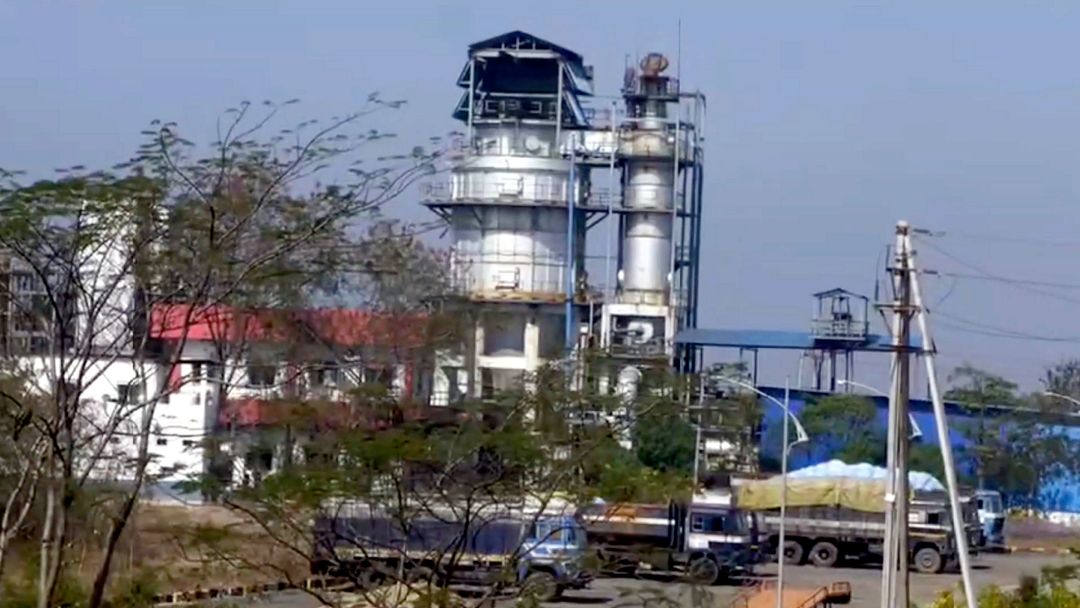Pithampur, Madhya Pradesh: A group of women held a protest in Pithampur town of Dhar district, Madhya Pradesh, on Saturday against the ongoing trial incineration of hazardous waste linked to the infamous 1984 Bhopal gas tragedy.
The protest, staged near the local bus stand, involved women sporting black bands on their foreheads and carrying pictures of Dr. B. R. Ambedkar. The demonstration began in response to the trial burning of 10 tonnes of hazardous waste that commenced on Friday, February 28, at an incineration facility in Pithampur. This waste is part of a larger consignment totaling 337 tonnes transferred from the Union Carbide factory site in Bhopal.
Protesters Voice Health and Environmental Concerns
Protest leader Monika Solanki highlighted concerns about health and environmental impacts, asserting, "A huge number of people died due to the Bhopal gas tragedy in 1984 due to a toxic gas leak from the Union Carbide factory. The bones of the victims of this industrial disaster are also being burnt at the incinerator along with the waste."Expressing continued opposition, Solanki further urged the government to reconsider, stating, "We have been opposing the incineration of this waste here for many years, as it will adversely affect the health of people and the environment in Pithampur. Therefore, we request the government to take back this waste from here."
Police Intervention Brings Quick End to Protest
Superintendent of Police Manoj Singh swiftly intervened, reaching out to the protesters to clarify the situation. He stated, "We assured protesters that the trial was being conducted scientifically and safely at Pithampur, approximately 50 km from the district headquarters. After these discussions, protesters ended the sit-in within half-an-hour."Security in the area has been significantly increased, with a large contingent of police personnel deployed around the incineration site due to recurring protests ever since the hazardous waste was brought to Pithampur from Bhopal on January 2.
High Court Directives and Government Assurance
This trial incineration process is taking place following explicit instructions from the Madhya Pradesh High Court, which on February 18 ordered the government to conduct an initial trial run of 10 metric tonnes, beginning February 27. According to the High Court’s directions, the second and third trial runs are scheduled for March 4 and March 10, respectively. The court will examine the outcomes before allowing disposal of the remaining waste.Notably, on February 27, the Supreme Court declined to interfere with the High Court’s decision to transfer and dispose of this hazardous waste.
The Madhya Pradesh government reassured the public by clarifying that the waste comprises soil from the now-defunct Union Carbide factory site, along with reactor residue, pesticide (Sevin) residue, naphthalene residue, and semi-processed waste materials.
Background of the Bhopal Gas Tragedy
The Bhopal gas tragedy occurred during the night of December 2-3, 1984, when methyl isocyanate (MIC) gas leaked from the Union Carbide facility, resulting in at least 5,479 deaths and severe health consequences for thousands more. The disaster is recognized as one of the worst industrial catastrophes in history.Pithampur, an industrial town, is home to approximately 1,250 industrial units employing over one lakh workers, including migrants from different states.
